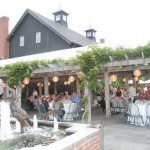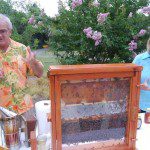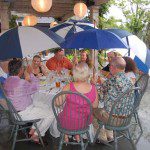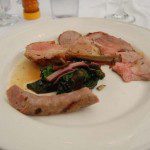Clyde’s 9th Annual Farm Dinner Impresses the Locals
By • May 3, 2012 0 1598
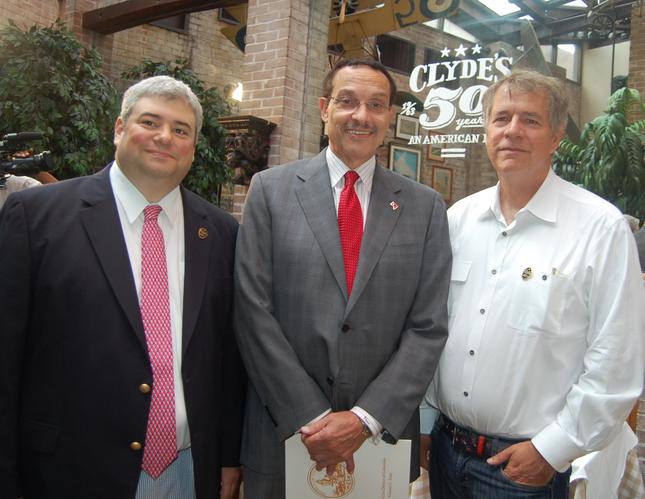
When the rain came in the middle of dinner, as predicted, few fled the covered patio, getting splashed nonetheless, for the exquisite interiors of Clyde’s Willow Creek Farm Restaurant. It was that good — and full of flavor and camaraderie. On Aug. 6, Clyde’s Ninth Annual Farm Dinner led 85 guests on a local food sampling exercise. From local honey, veggies, clams and lamb to fine wines, the five-course dinner was an advocate for local farms and local buying. After all, it is a main event for the non-profit Slow Food D.C.
Willow Creek Farm Restaurant, managed by Paul Fox, lives up to the slow food creed. It has its own farm to start — along with four reassembled heavy-timber buildings, thanks to the collecting obsession of Clyde’s main man John Laytham. Spread out like a classic American inn, parts of the restaurant are a sight to behold inside and outside, reminding the D.C. visitor of images of 1789 Restaurant, Old Ebbitt and other Clyde’s places we know and love. The farm is a few minutes’ walk from the parking lot. As for the drive, Willow Creek Farm is in Ashburn (Broadlands), Va., and a straight shot due west on the Dulles Toll Road; be mindful of the street names once off the toll road.
After a tour of the farm and a beekeeper’s presention by Patrick and Diane Standiford, Clyde’s corporate chef John Guattery, a slow food enthusiast, welcomed the diners and let the servings begin. The menu included Chesapeake Bay soft-shell clams with ravioli (herbs from the farm next to us) in Blue Ridge Dairy butter; Roast Border Springs lamb (leg, rack and sausage); roasted peach semifreddo with the farm’s honey popcorn. Virginia wines — Rapidan River, Chrysalis Vineyards, Fabbioli Cellars, Hillsborough Vineyards — accompanied the dishes.
Later, shepherd Craig Rogers gave an impassioned defense of the world’s “oldest profession,” which has been looked down on throughout history. Rogers, a shepherd with a doctorate, had the guests laughing at his contemporary and Biblical insights. Renee Catacalos, former publisher of Edible Chesapeake magazine which folded, spoke of the need to extend the taste and nutritional benefits of the slow food and local farming movement to many people, especially those in schools and hospitals.
Friends, foodies and those who simply like to eat well all learned something about the care of farming, cooking and eating locally. For us city folk, it is no longer a far-away feast, thanks to the master designers of the complete food experience at Clyde’s. Let’s give them an old-fashioned Georgetown “huzzah!”
- Willow Creek Farm’s patio, ready for the dinner to begin. | Robert Devaney
- Robert Devaney
- Robert Devaney
- Robert Devaney
- Robert Devaney
- Robert Devaney
- Robert Devaney
- Robert Devaney



